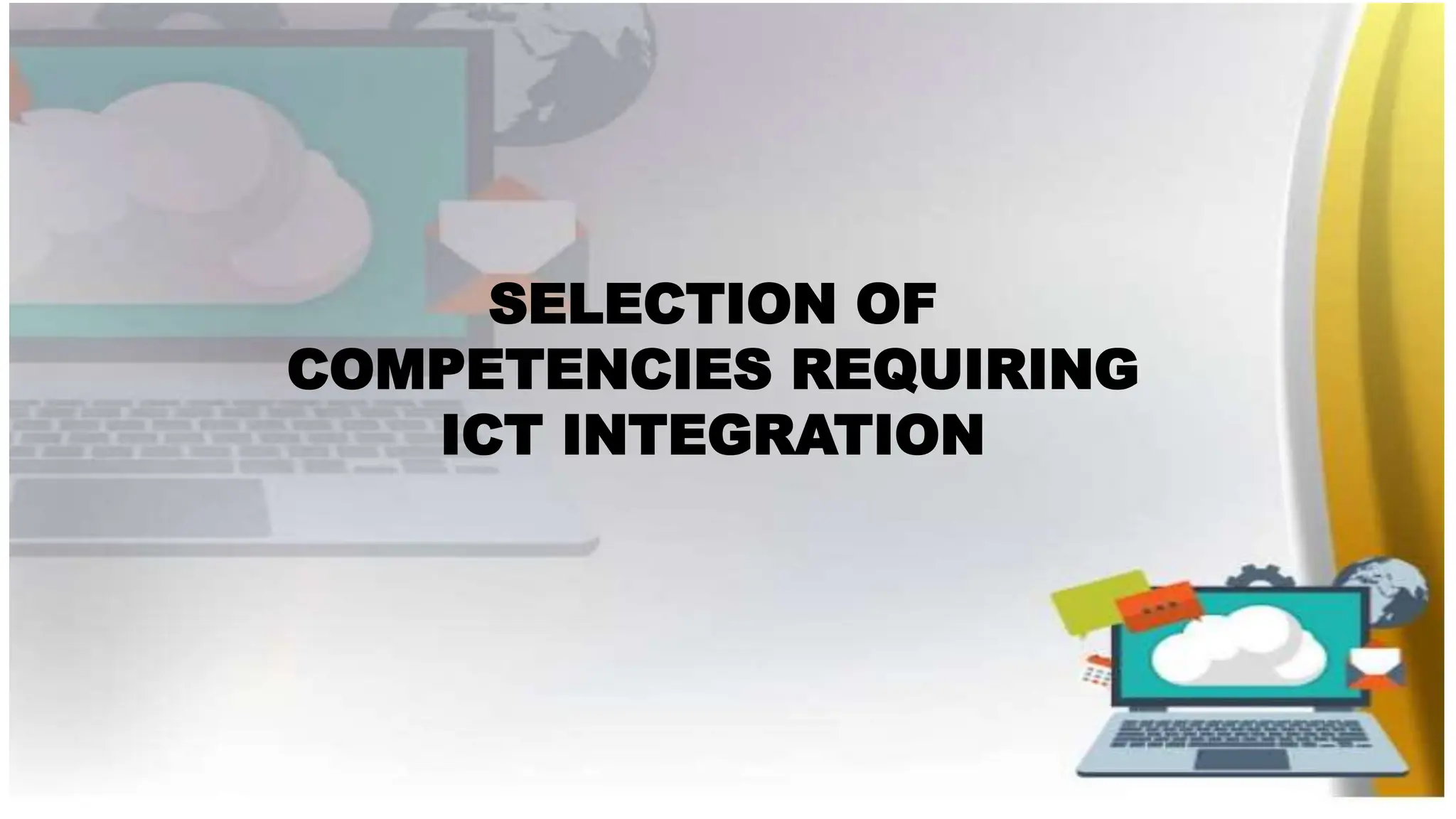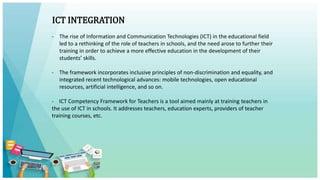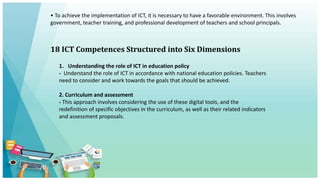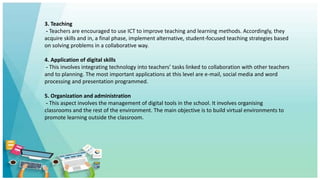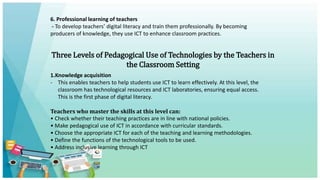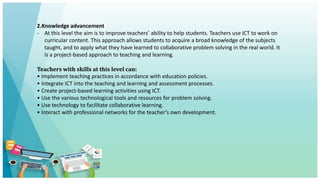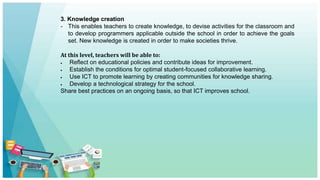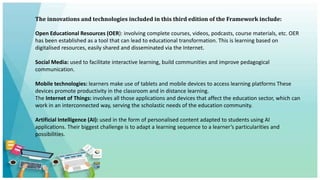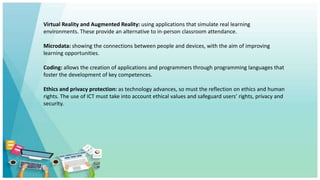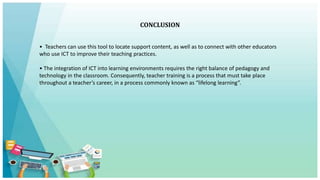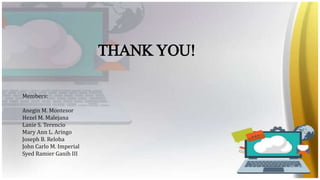This document outlines an ICT Competency Framework for Teachers that aims to train teachers in using technology in schools. It describes 6 dimensions of ICT competencies including understanding education policy, curriculum/assessment, teaching, digital skills, organization/administration, and professional learning. It also details 3 levels of pedagogical technology use - knowledge acquisition, advancement, and creation. New technologies discussed include open educational resources, social media, mobile devices, the internet of things, artificial intelligence, virtual/augmented reality, microdata, and coding. The conclusion emphasizes the importance of ongoing teacher training to integrate technology and pedagogy.
